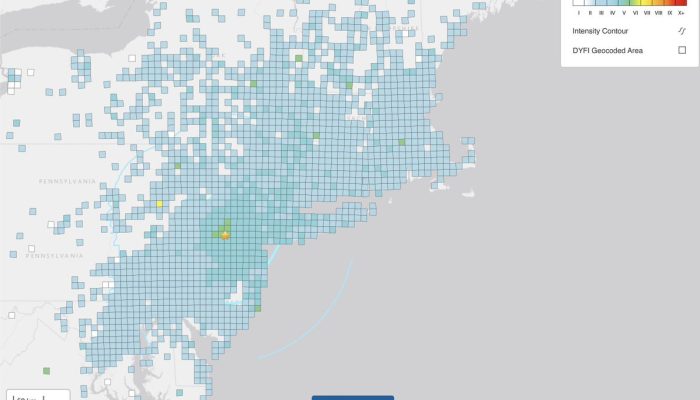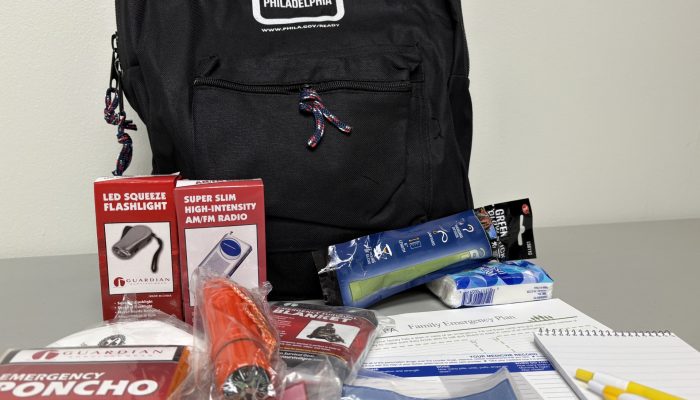The US Geological Survey confirmed that a magnitude 4.8 earthquake occurred near Whitehouse Station, New Jersey on April 5, 2024 at 10:23 a.m. The earthquake was felt in the City of Philadelphia with reports of shaking being made to the City Public Safety officials almost instantaneously.
Immediately, the City enacted its emergency operations plan to assess the situation, coordinate between response organizations, and prepare to respond to requests for assistance. At 10:40 a.m. the City’s Emergency Operations Center was activated by the Office of Emergency Management (OEM) to assess damages, impacts, and ascertain any unmet needs. OEM convened more than 25 local, regional, state, and federal partners in the response with a focus on public safety services, the City’s utility and transportation infrastructure, healthcare facilities, and community and cultural centers like schools and historic buildings.
As of 1:15 p.m., no significant issues or injuries have been reported to the city.
Philadelphia Fire Department stations are assessing their own neighborhoods for any damage to buildings which may have been weakened by the recent storms, and for any infrastructure issues across the entire city. The Department of Licenses and Inspections continues to investigate reports of building defects. The Philadelphia International Airport had a brief delay to conduct inspections but is back to routine operations – air travelers are advised to check on the status of their flight with their airlines.
While earthquakes are rare for Philadelphia and aftershocks are less than likely, the following information is shared for this event and for future earthquake preparedness.
Stay Safe
If an earthquake happens, protect yourself right away:
- Drop, Hold On, Cover: protect yourself, drop on your hands and knees, hold on to something sturdy like a table or desk, and cover your head and neck with your arms.
- If you are in a car, pull over and stop. Set your parking brake.
- If you are in bed, turn face down and cover your head and neck with a pillow.
- If you are outdoors, stay outdoors away from buildings.
- If you are inside, stay and do not run outside and avoid doorways.
Following an earthquake:
- Check your home or building for structural damage, if you are inside of a damaged building, go outside.
- Be aware of other hazards like broken utilities—downed power lines, broken gas pipes, and damaged roadways.
- If you suspect any unsafe and immediately dangerous condition, call 9-1-1.
For more safety information visit: https://www.ready.gov/earthquakes
Stay Informed
Stay connected to the situation. Here are places you can learn more about what’s going on:
- View the city response briefing here: https://bit.ly/3vJShPB
- Follow the Office of Emergency Management on X (Twitter) and Facebook
- Sign up for emergency alerts by signing up for ReadyPhiladelphia or texting ReadyPhila to 888-777




